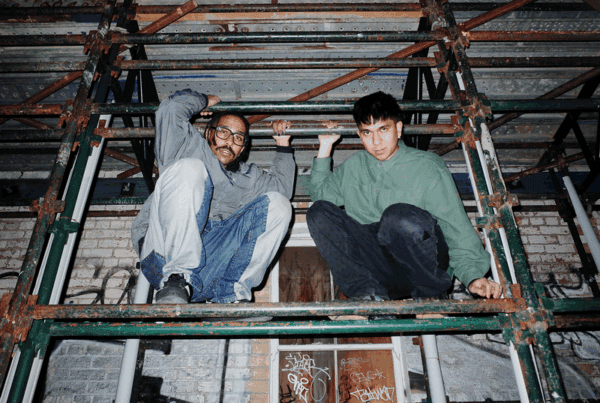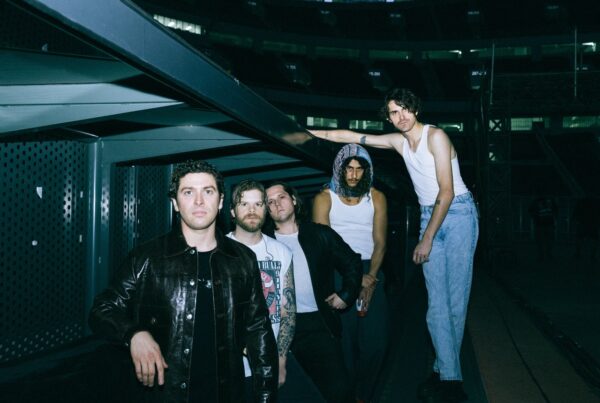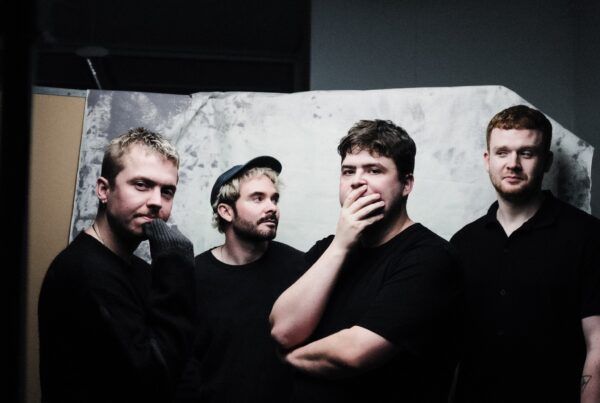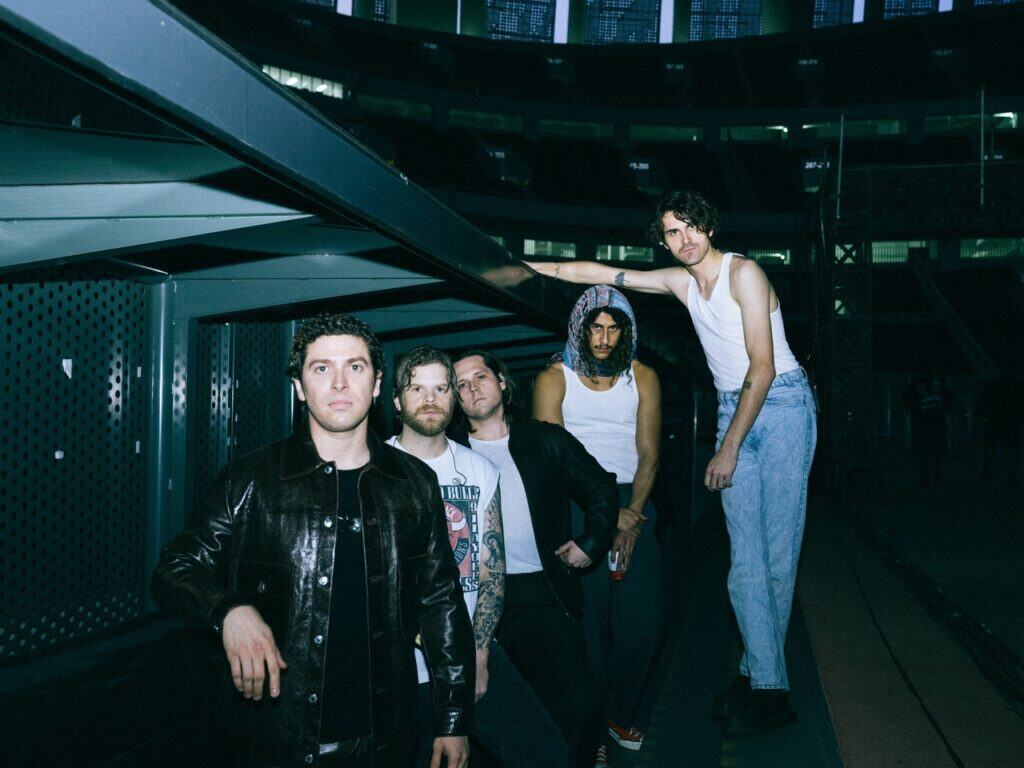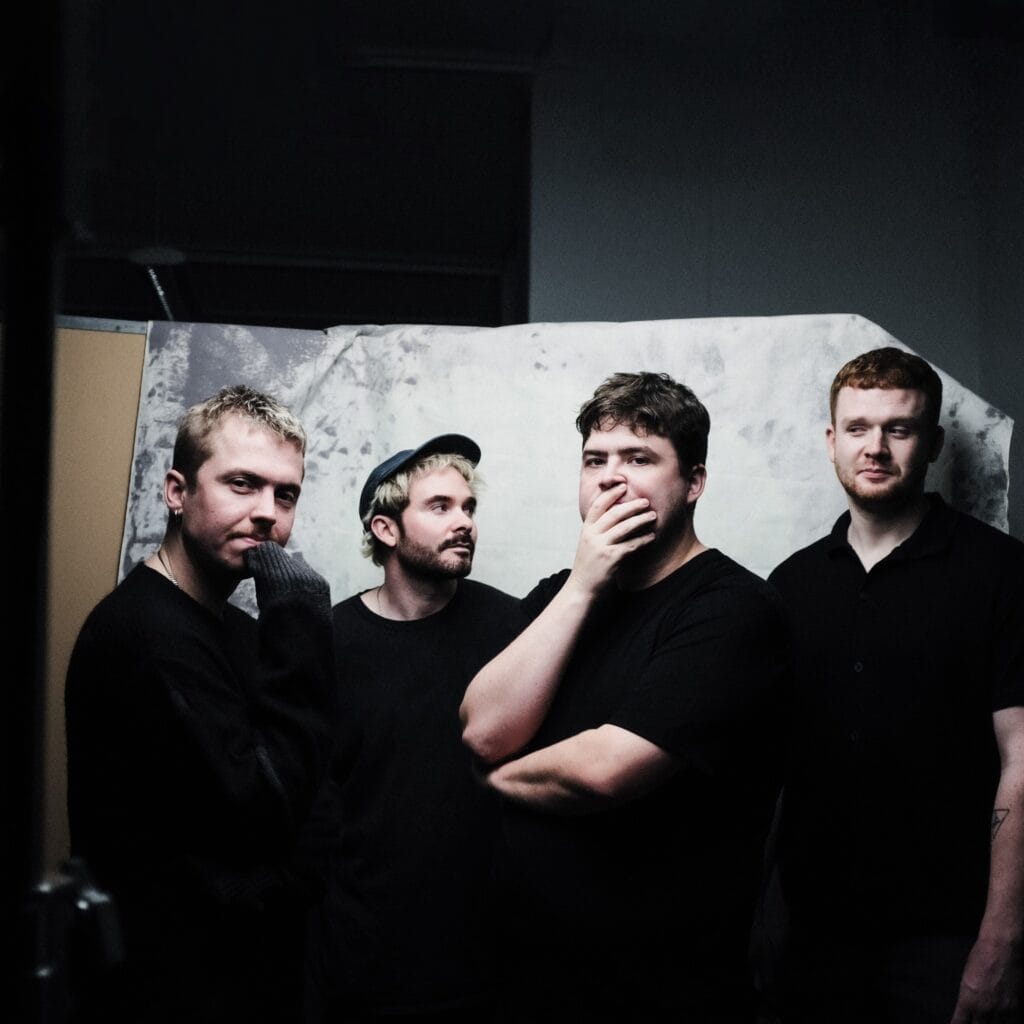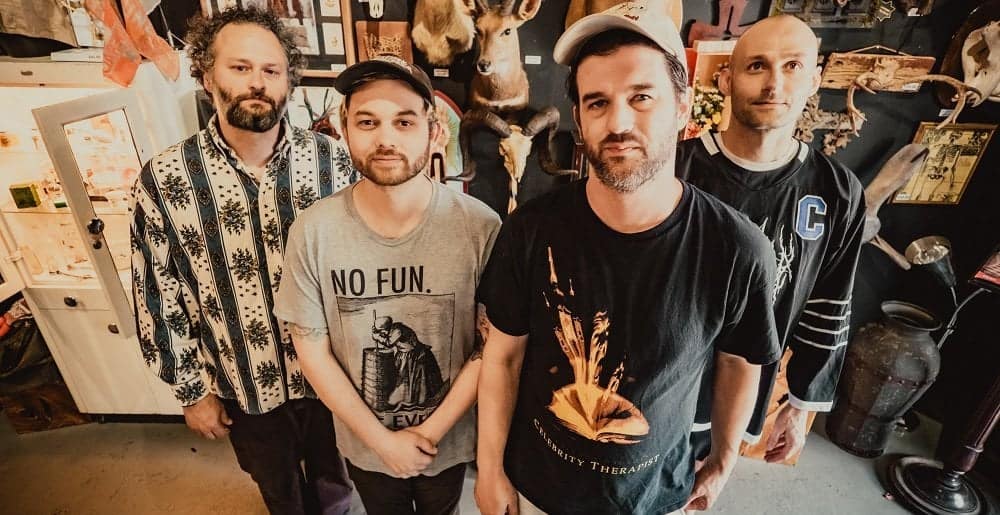After 25 years, Newport-hailing rock band Feeder still stand as unshakeable monoliths of rock. Climbing commercial peaks, Feeder are the architects of anthemic head-bangers from “Buck Rodgers”, all the way to profound rock ballads such as “Feeling A Moment.” 2019 welcomed the release of their tenth studio album, Tallulah – and they’re still changing. Dipping into spirituality and mysticism, Feeder bring it to the forefront by experimenting with electronic elements and psychedelia, while still staying true to their winning formula.
We speak to Feeder’s frontman Grant Nicholas: he’s been to the other side of the world and back – twice. With touring Singapore and Japan with their latest record, as well as working on collaborations with Japanese bands, Feeder have showed no signs of slowing down. Success, Nicholas shares, is interwoven with hard work. “I’m still inspired, and writing more than I ever have. But I think the most important thing is it has got to be enjoyable. We’ve been lucky, but we’ve also had a lot of ups and downs. But the last few years, it has just been really good. I feel like we’ve really came… not full circle… but we’re more respected now than we were ten years ago. We don’t have to prove anything – we can just do what we do.”
“We still pack clubs”, Nicholas says, “We’ve got an amazing fan base that’s growing all the time – really young, as well. These kids coming to our shows is really encouraging for a band that’s been going for almost 25 years. Success, to me, is doing music that feels good to us as well. That’s something: we’ve never sold ourselves as something that we’re not. To me, it’s all about the songs. I think that’s why we keep doing it, really: there’s been something there that’s connecting with people that keeps us going.”
The second track of Tallulah, “Blue Sky Blue”, is a song of optimism for brighter days even in the darkest of times. “Everyone has their dark days – me included. Music is so important because it brings people together and stops you feeling alone, sometimes. I think that’s what is so great about being in a band and creating music: bringing people together and connecting people. And you know, “Blue Sky Blue” that song says so much. There’s a lot of very day to day kind of lines in that song, but I think it’s so true, that song. You’re gonna make mistakes. With anything in life, you know, you have to do your best to find a positive.”
While Feeder’s songs have helped others, Nicholas tells us that they’ve just as much helped him: “I think people really connected with a lot of the lyrics on that, but it also really helped me on a personal level when I wrote those songs, you know? I think it’s a very simple song. It doesn’t have to be doesn’t have to be overly clever – it’s just putting down words that connect with people. That is the secret of a good song, for me.”
Feeder as a band, with a longevity spanning a quarter of a century, no less, have evolved in ways that most bands haven’t had the privilege to. Their debut album, Polythene (1997) and the successive Yesterday Went Too Soon (1999), must seem worlds away from where they are now, but Nicholas disagrees: “You know what? It doesn’t seem that long ago, because obviously, we’ve always been really busy – even when I was doing solo stuff, I was still, like, really busy – I don’t feel like I’ve ever really stopped. It’s not like I ever took four years off and became a recluse. I think I’m just a little but more focused, and maybe more comfortable. Song writing is something you never get tired of. There’s always something new to do, or like a different headspace or a new experience that you can put into a song.
“I’ve got two kids now – I didn’t have kids in those days. It’s a whole different thing to me, now.” He confesses. “I mean, I don’t think it’s slowed me down – I actually think it’s given me more of a spark, being a parent, because it’s probably made me more driven, in some way. I think when you have kids, it’s possible that you can lose a bit of drive. Don’t get me wrong: I spent a lot of time with my kids, but I also stay really focused on the music, as well.”
“But also, as a band”, Nicholas considers, “I think we’re finally getting the recognition for what we do. I didn’t realise how many singles we put out until we did this tour, recently, and I was like, “Oh! We’ve done quite a bit! You don’t realise, until you read the press releases, how much you’ve actually done. We’re kind of not a cult band, exactly, but we’ve got this weird status because we’ve always been on small labels. We’ve never got as big as Muse or Foo Fighters, but we’ve always been kind of successful – but in a slightly more understated way.” Nevertheless, Feeder have been inducted into the Kerrang! Hall of Fame for services to rock music, with their albums regularly tallying up gold and platinum awards.
This accumulation of successes from a band with their roots in Newport, Wales is somewhat staggering. Wales is not famed for being a creative hive, paling in comparison to the London-centric myth that to be a successful artist, you must be based there. Feeder moved to London from Newport for precisely this reason. However, Nicholas tells us that when they arrived, they never belonged to the scene. “It was all Britpop”, he explains, “We never really quite fit into that, because we were a different kind of band. We still played alongside Britpop bands because that’s the only way we could get the gigs – but it worked. We started to blow people away because we sounded a bit more powerful. We moved out of Wales, because at the time it was hard to get noticed.”
“I think now it’s different because of social media – which we didn’t have back in the day. You’d just hope someone from a record label listened to your demo tape or went to your gig. I wouldn’t want to put a downer on it: for any young kids, I’d say follow your dream, because it can happen. Feeder is proof of that. Be determined and never take no for an answer. If you believe in what you do, if you work hard and you have a bit of luck, it can happen. That’s the advice I would give: never let anyone put you down. And that can apply to anything, really. Just give it a go. You don’t want to get older and think, “I wish I’d given it a go.” I’d be lying to you if I didn’t say it was a tough career. It’s hard, but you know, I wouldn’t want to put anyone off it. If you’re in a band, I would say be aware of what’s around you, musically and socially. The key thing is, it doesn’t matter how cool or trendy the scene is that you’re a part of, at the end of the day it’s all about the songs. Any bands still going these days have got the songs, and that’s the key to their longevity.”
In 2014, Nicholas announced that he would be releasing his solo album, Yorktown Heights. After 20 years of Feeder, without any time off, it felt like high time for him to pursue his own creative venture. “It was a whole different headspace [from Feeder],” he explains. “It was a completely clean canvas for me – and I enjoyed it. I didn’t do any Feeder songs on the tours. I mean, normally even those big artists, they’ll perform their solo record plus a few old favourites from their main band. But I didn’t want to do that out of respect for the Feeder thing. Even though it’s the same writer, it’s a whole different chemistry.”
“It’s different,” he emphasises. “I’m sure if I was playing Feeder songs on my solo tour, I would sell out every venue overnight. I felt like the songs were good enough, and that’s why I didn’t want to confuse the message.” While he admits that he relished the opportunity to branch out, he’s careful to establish that “Feeder is always my main priority. I did really enjoy the solo thing, because I got to go and do so many gigs – I even went to Japan with it. It’s just my own little label. You know, we didn’t have any kind of backing behind it, but there was a pretty good result. I wanted people to know it wasn’t just a hobby – it was something I really wanted to do properly.”
With Tallulah being scarcely a few months old, Nicholas is already working on new material. “I’ve started writing a couple of new songs, actually. It might be that we do start a new album for next year – I can’t make any promises. It’s not like we’re short of material.” With the promise of travelling the length and breadth of the world for the umpteenth time, drawing from a source of seemingly never-ending music, you might think that it must get old. Not for Feeder: each time is as sweet as the first.

